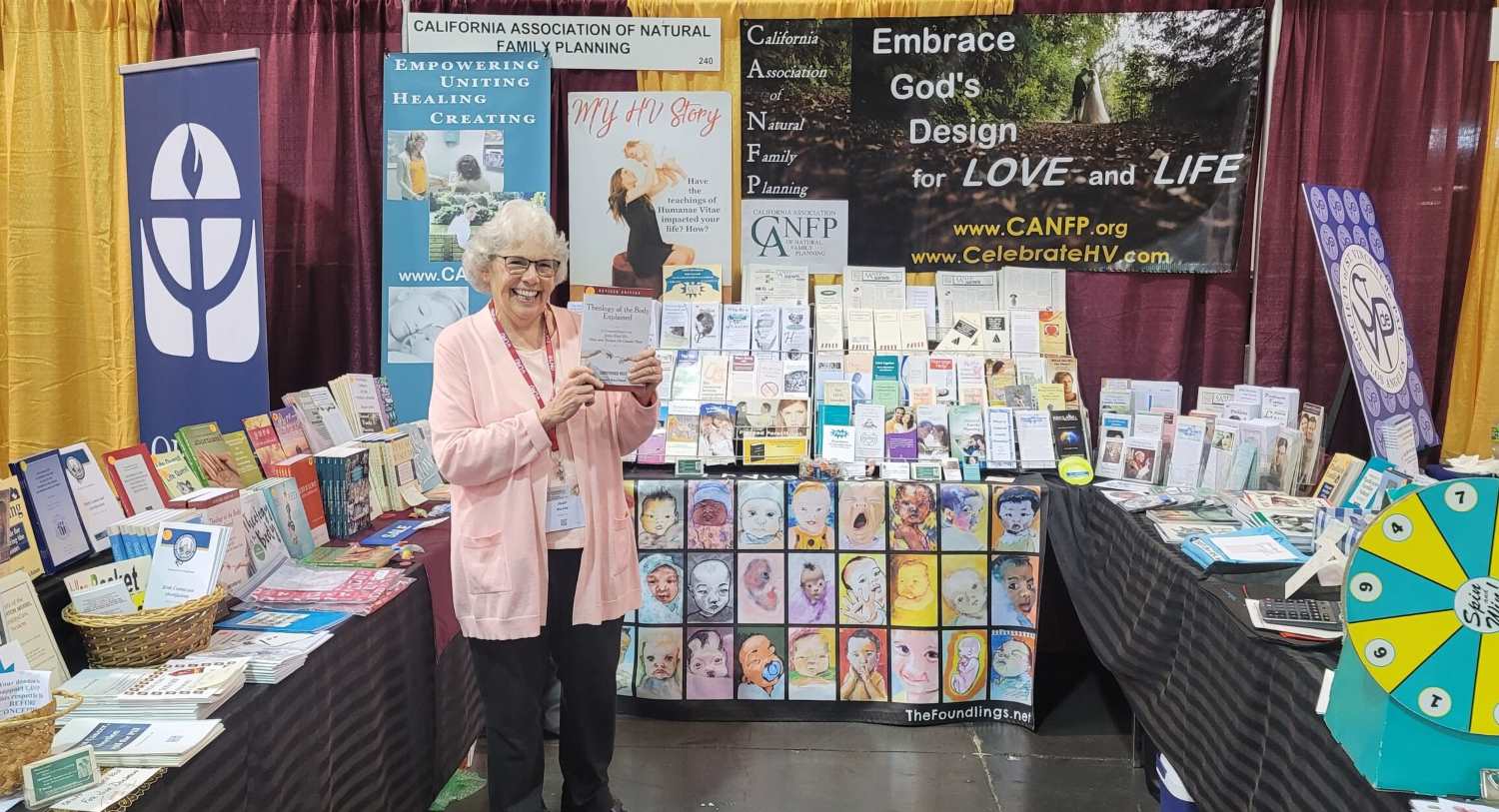- Featured Favorites
Uncharted Territory! Continuing to Live the NFP Lifestyle After Menopause
by Joan Noyes
Fall 2024
If ever there were a time for patience, tenderness, and creativity in marriage, the years during and following menopause would be it! Skills learned during the childbearing years—communication, deferred gratification, self-control, and empathy—are more important now than ever before for NFP couples.
For some women, the transition to menopause is calm and peaceful. For others, menopause can wash over them like a tidal wave, repeatedly knocking them over, month after month. There are many factors at play during this mysterious time of change that comes to all women. Hormonal changes can cause a myriad of symptoms, both physical and psychological. This “change of life” may be happening to his wife, but it affects the husband as well.
The finality of menopause can be challenging for the couple who were never able to have children, or for those who were unable to conceive again, despite a desire for more children. Even those without a history of impaired fertility may have regrets over not having had more children. Grief over miscarriages, stillbirths, or neonatal deaths can surface, spill over, and loom large again during menopause. Loss of fertility can be a devastating blow, and both the man and woman may experience loss, and even grief.
Sharing feelings about physical or psychological changes is vital during and after menopause. Both husband and wife need reassurance that they are still lovable, and that the desire for intimacy persists, and is mutual.
The “courting” phase of abstinence while practicing NFP no longer exists. This can be an adjustment for both husband and wife, and communicating needs and feelings is important in these new circumstances. Women need to know that their husbands do not consider them an object, always available, just because menopause has retired that cycle of fertility and infertility. Some couples have found it helpful to plan “date nights” in advance, so both partners feel their needs are acknowledged and have time to prepare for a romantic interlude.
Love is the key to understanding and appreciating one another. Patience and empathy are the tools that will make that happen. For some couples, health problems could already be a factor in their intimate life. The couple’s doctors are a resource for navigating physical conditions they may experience. Others may find that moving past fear of pregnancy could herald a joyful new era of freedom.
There are as many ways of living out love for post-menopausal NFP users as there are couples.
There may be unresolved issues from the past if the man and woman had been unequal in their commitment to NFP or had differing feelings about it. Validation of one another’s feelings facilitates new growth. Regardless of past differences, the post-menopause years can be a time of healing and new understandings for the couple. Mutual affection will help both man and woman to navigate this time of change and upheaval.
Compromises which honor the needs of both husband and wife will help love continue to grow. Reassuring one another of their value and attractiveness can help weather the storms of advancing age and diminishing vitality. The old formula of lots of hugging, saying “I love you” every day, and ample patience and forgiveness will go a long way toward coping with menopause. Praying together is more important now than ever.
If you are an NFP couple struggling with menopause, take heart! You already possess the tools you need to get past any challenges and to create a beautiful new future for yourselves. Do not be afraid to ask for help in remembering how to use those tools, or to ask for help from your medical professionals. Remember how much you are loved by God and that He is always there for you, ready to help and guide you!
About The Author



